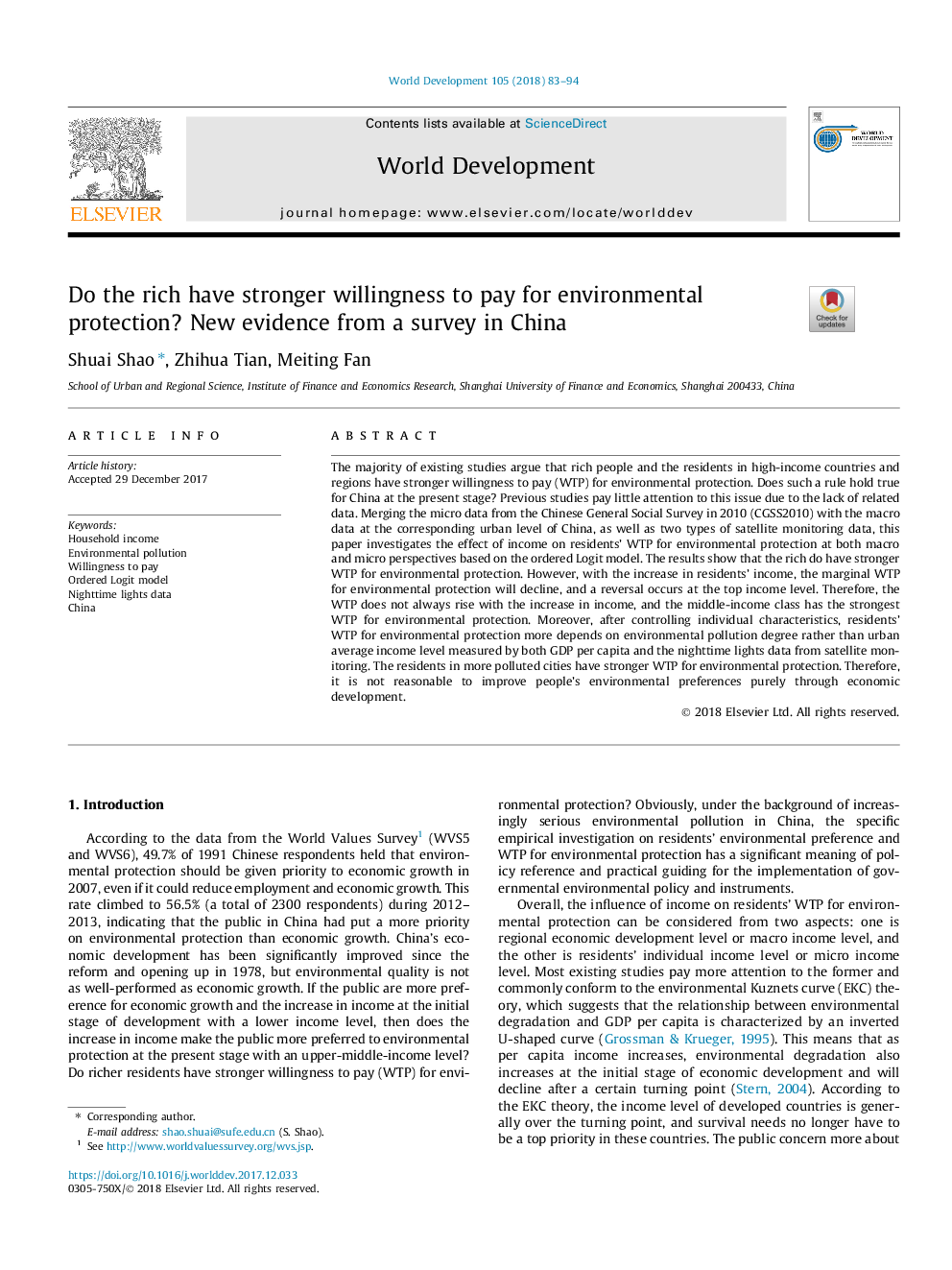ترجمه فارسی عنوان مقاله
آیا غنی ها تمایل بیشتری برای پرداختن به حفاظت از محیط زیست دارند؟ شواهد جدید از نظرسنجی در چین
عنوان انگلیسی
Do the rich have stronger willingness to pay for environmental protection? New evidence from a survey in China
| کد مقاله | سال انتشار | تعداد صفحات مقاله انگلیسی |
|---|---|---|
| 136291 | 2018 | 12 صفحه PDF |
منبع

Publisher : Elsevier - Science Direct (الزویر - ساینس دایرکت)
Journal : World Development, Volume 105, May 2018, Pages 83-94

